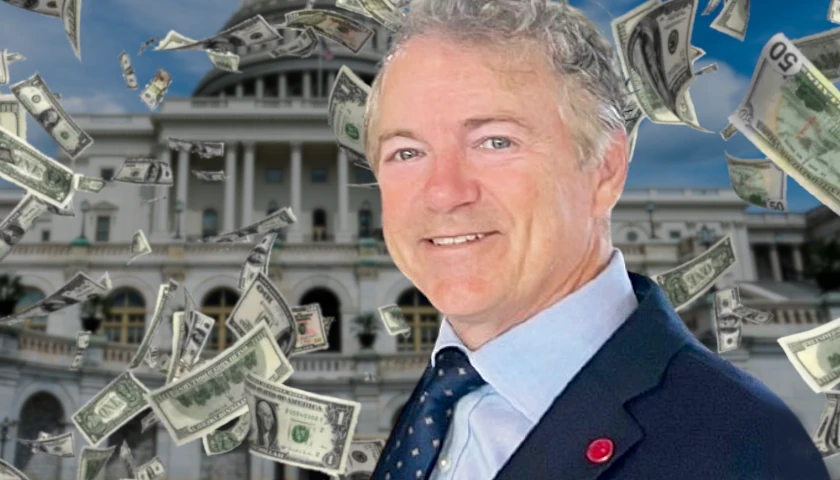The first woman Chancellor of the University of Tennessee, Beverly Davenport, has been fired effective July 1 although she will remain on the payroll as a tenured professor of Communications.
Davenport began her tenure as Chancellor in February, 2017 but was terminated by President Joe DiPietro for a number of reasons, which he cited in a letter to Davenport. “As I indicated to you last Tuesday, I do not think you can be successful as the leader of our flagship campus and have decided that it is best to move forward with a change in leadership rather than putting you on a formal performance improvement plan,” DiPietro said in the letter.
When Davenport takes assumes her position as a professor, she will be receiving 75 percent of her initial base salary as professor for four years, approximately $439,000 per year, at which time her pay will be adjusted to the average base salary of a full professor. She is being immediately placed on administrative leave with pay until June 30.
To call DiPietro’s termination letter to Davenport scathing could be an understatement, as he detailed her failings and refusal to address concerns that had been expressed to her earlier.
Here is the full text of the letter:
Dear Beverly:
I have decided that it is in the best interest of The University of Tennessee to change the leadership of our flagship campus and terminate your appointment as Chancellor of The University of Tennessee, Knoxville.
Your performance evaluation for Calendar Year 2017, a copy of which is being provided to you under separate cover, describes numerous areas of unsatisfactory performance. In several areas, even after I raised concerns early in your tenure and addressed them multiple times since then, you have been either unwilling or unable to improve, including:
1. The relationship between us, as well as that between you (and some members of your cabinet) and some on my leadership team continues to be unsatisfactory. More times than I find acceptable, there has been a lack of trust, collaboration, communication, and transparency in these relationships, and it has been counterproductive to the collective success of the university.
2. You would have benefited from a professional coach, and your unwillingness to routinely engage one, despite my recommendation that you do so, has been frustrating.
3. You have not acclimated yourself to the UT system and still appear unwilling to try to understand or acknowledge the value of the UT system. I continue to detect that you (and some members of your cabinet) have an “us (UTK) vs. them (UT system and UT Board)” mentality.
4. Your one on one, small group, and business transactional communication skills are very poor. I have had multiple people on multiple occasions complain that you do not listen to the person talking to you or pay attention to the details of written communications you receive. I also have received multiple complaints from multiple people about your ability to communicate orally. These complaints are consistent with my personal experience.
5. Regularly, you have problems with lack of organization, attention to details, timely follow-up.
6. You have failed to accept ultimate responsibility in some cases where subordinates make mistakes or errors and publicly have blamed administrators who held positions before you or others in dealing with problems you inherited.
7. You have failed to communicate to the campus a defined strategic vision of where you want to take the institution and a plan for its implementation.
As I indicated to you last Tuesday, I do not think you can be successful as the leader of our flagship campus and have decided that it is best to move forward with a change in leadership rather than putting you on a formal performance improvement plan after considering: (1) the number, magnitude, and fundamental nature of the areas that need to be addressed; (2) the lack of trust in our relationship; (3) your unwillingness or inability to address many of the areas that I brought to your attention early in your tenure and multiple times since then, which leads me to conclude that a formal performance improvement plan would not lead to the required changes; and (4) the broad-based concerns and compelling lack of support from Board of Trustees members regarding your leadership, and my belief that you will have similar problems with the new Board.
Effective July 1, 2018, in accordance with the terms of your appointment letter dated December 6, 2016, your appointment will be converted from your current administrative appointment as Chancellor to your full-time faculty appointment as Professor, with tenure, in the School of Communication Studies. As approved by the Board of Trustees, your compensation as Professor will be $438,750.00 (which is 75% of your initial base salary as Chancellor of $585,000.00) for four years. Beginning with the fifth year, your compensation in your faculty appointment will be adjusted to the average base salary of full professors in the department. Effective immediately, and until June 30, 2018, you will be placed on administrative leave with pay.
Obviously, this is not where either of us hoped we would be when I hired you. Personally, I am disappointed that this action is necessary, but as President it is my duty to make decisions that are in the best interest of The University of Tennessee. I wish you the best as you return to the faculty.
Sincerely,
Joseph A. DiPietro
President
Some students have protested the decision, and “the Rock” has been painted with statements supporting Davenport and condemning “the Haslams” for the decision, though there is no indication that Tennessee Governor Bill Haslam or any other member of the Haslam family had anything to do with President DiPietro’s decision.
Davenport antagonized many conservative legislators and alumni when she announced reinstatement of a Director for the Gay Pride Center. Her decision to accept private funds to permanently establish a LGBTQ ‘gay pride” center on campus also drew ire in many circles though it was celebrated by some.
DiPietro himself is leaving the University when his contract ends in 2019, though there have been rumors that he may depart much earlier. He indicated that he would move quickly to appoint an interim Chancellor while a search is conducted for a permanent hire.




